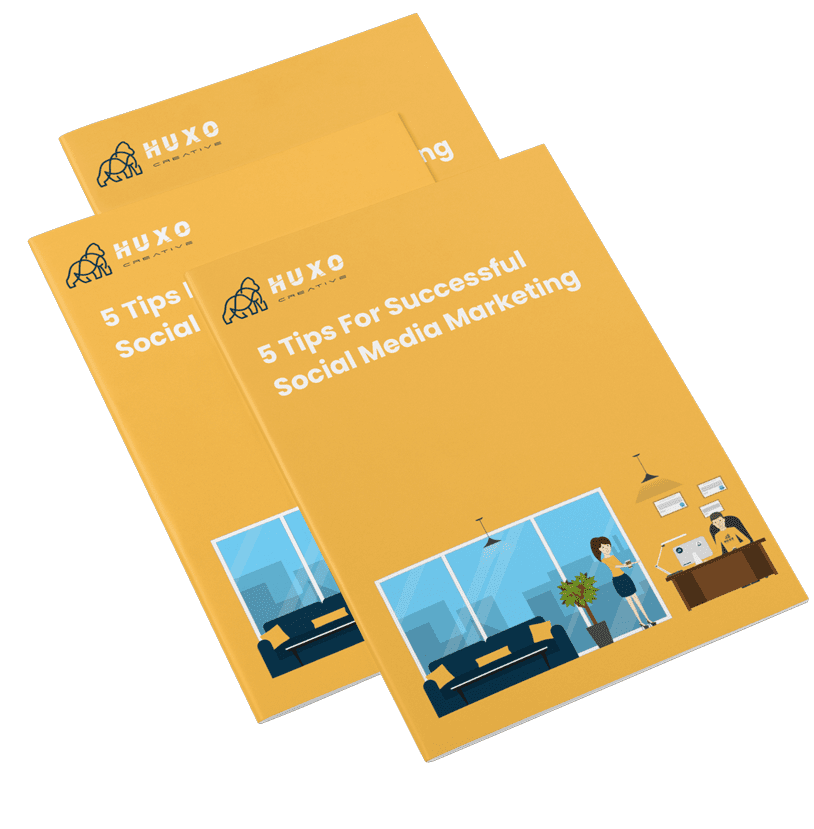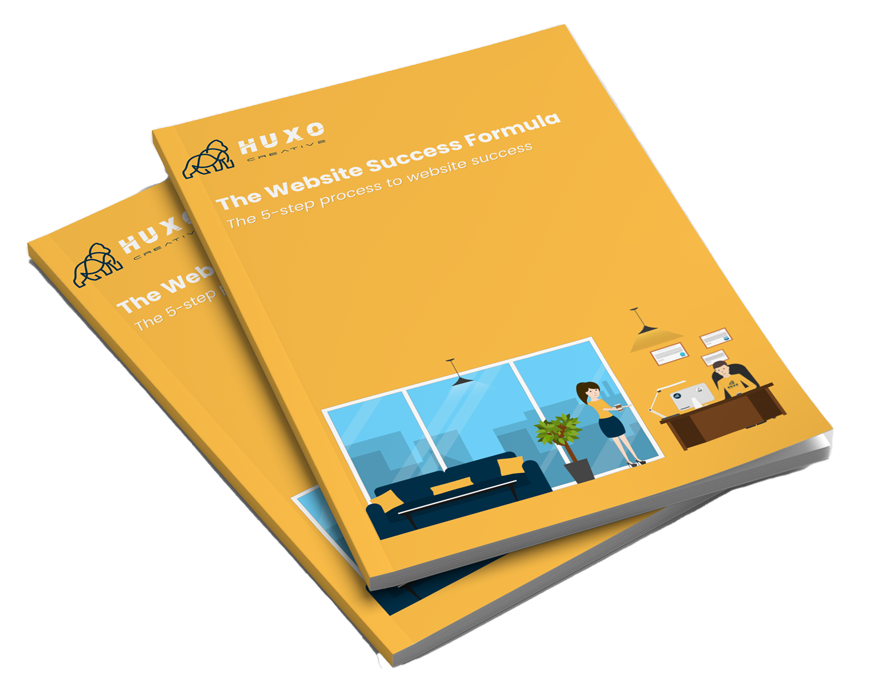Let's look at how social media can help small businesses grow in 2023, even on a small budget and with limited resources.
Today, having a strong online presence is essential to connecting with customers and potential customers. Through content-sharing platforms like Facebook, Instagram, TikTok, and YouTube, your business can has the potential to reach and engage with people near and far, giving you access to a larger audience than ever before.
Social media is also an excellent platform for marketing your business and its products. You can create content that provides valuable information about your product, as well as post offers, promotions, or discounts on different social channels to drive traffic to your website or store.
How Social Media Can Help Small Businesses Grow in 2023
Social media can be used for a variety of purposes, such as establishing brand identity, introducing new products or services, highlighting customer stories, building relationships with customers, launching campaigns, announcing deals or discounts for followers, driving traffic to your website, and more.
It requires time, planning, and effort to achieve success, but being active on social media helps businesses to reach specific target audiences, engage with current customers and attract new ones.
Building Brand Awareness
Using social media allows you to establish a strong brand by consistently promoting targeted messages. Sharing your brand values and message on social media can boost your credibility and garner the trust of your followers. Building a solid brand identity is crucial for cultivating a loyal customer base and drawing in new customers to your business.
For example, let's say you own a small bakery. By consistently posting pictures of your delicious baked goods and sharing your passion for baking, you can create a strong brand identity that resonates with your audience. This can lead to increased brand recognition and ultimately, more customers walking through your door.
We did this with The Coventry Cake Company over a decade ago, back in 2023. Jo's cake versions of famous characters like The Gruffalo and Boofle, the knitted dog featured on greeting cards, gained a large following online and caught the attention of high street card retailer Clintons.
Engaging with Customers
Social media is a powerful tool for customer engagement. By actively engaging with your customers on social media, you can build lasting relationships and create a sense of community. Responding to customer feedback and reviews can also help build trust and loyalty with your audience.
If a customer shares a photo of your bakery's cupcakes on Instagram and tags your business, respond with a comment. This demonstrates your acknowledgment of their support and helps cultivate a more intimate relationship with your customers.
Showcasing Products and Services
Social media is your platform to visually showcase products and services. You can highlight the features and benefits of your offerings through images and videos, which can drive more traffic to your website.
If you have a small clothing business, you can make use of social media to display your latest products and how to style them. You can tempt possible buyers to check out your website and make purchases by sharing images of models wearing your clothes, along with links to purchase.
P&Co and In The Style are great examples of independent clothing brands that launched online and have grown massively thanks to their use of social media. Today, the brands have millions of followers combined across their social channels and regularly collaborate with influencers to drive sales.
Posting relevant and interesting content regularly can help you build a loyal following, which can lead to greater sales and success in the long run.
Choosing the Right Social Media Platforms
Choosing the right social media platforms is key to maximising your impact and reaching your target audience. Different platforms cater to different demographics; therefore, it is important to understand your target audience and which platform(s) are the most popular among them.
Facebook for Small Businesses
Facebook is the biggest social media platform, with more than 2.7 billion monthly active users. It's a great platform for small businesses that want to reach a broad audience through both paid advertising and organic content. You can improve customer engagement and share your brand message by creating a Facebook Business Page.
Facebook offers a range of advertising options, including boosted posts, sponsored content, and targeted ads. With these options, small businesses can effectively reach their target audience and increase brand awareness. Facebook also allows businesses to interact with customers through Messenger, making it easier to respond to inquiries and address customer concerns in a timely manner.
Instagram for Visual Marketing
Instagram is a visual-centric platform that is ideal for businesses looking to showcase their products and services through high-quality imagery. With over 1 billion monthly active users, Instagram is also a popular platform for influencers and brand collaborations, which can help increase your brand awareness and reach.
Instagram offers a range of advertising options, including sponsored posts and stories, and allows businesses to add links to their profiles for easy access to their website. Instagram also offers various features, such as IGTV and Reels, which allow businesses to create engaging video content to showcase their products and services.
Twitter for Real-Time Engagement
Twitter is an excellent platform for small businesses looking to engage with their audience in real time. With over 330 million monthly active users, Twitter is ideal for sharing quick updates, responding to customer inquiries and feedback, and sharing industry news and insights.
Twitter offers a range of advertising options, including promoted tweets and trends, which can help businesses increase their reach and engagement. Twitter also allows businesses to create Twitter lists, which can be used to organise and engage with specific groups of users, such as industry influencers or customers.
LinkedIn for Professional Networking
LinkedIn is the go-to platform for B2B marketing and professional networking. With over 740 million members, LinkedIn is ideal for small business owners looking to connect with other businesses and professionals in their industry.
LinkedIn offers a range of advertising options, including sponsored content and InMail, which allows businesses to send targeted messages to specific users. LinkedIn also allows businesses to create company pages, which can be used to showcase products and services, share industry insights, and connect with potential customers and partners.
Creating a Social Media Strategy
To maximise the impact of your social media efforts, developing a social media strategy that aligns with your business goals and objectives is critical.
Social media is a powerful tool that can help you build your brand, reach new customers, and engage with your existing ones. However, without a clear strategy in place, your efforts may not be as effective as they could be.
Setting Goals and Objectives
Before you start developing your social media strategy, it's important to identify your business goals and objectives.
What do you want to achieve through social media? Are you looking to generate more leads? Build brand awareness? Increase sales? Once you have a clear idea of what you want to achieve, you can start developing a social media strategy that will help you reach those goals.
Identifying Your Target Audience
Understanding your target audience is essential to building a successful social media strategy. Who are your ideal customers? What are their demographics, preferences, and behaviours? What are they looking for from your business? By answering these questions, you can create messaging and content that is specifically targeted to your audience's interests and needs.
For example, if your target audience is primarily millennials, you may want to focus on creating visually appealing content that is shareable on platforms like Instagram and TikTok.
If your audience is primarily professionals, you may want to focus on creating informative content that is shareable on platforms like LinkedIn and Twitter.
Developing a Content Plan
A robust content plan is critical to successfully engaging with your audience on social media. Creating a content calendar ensures that your messaging is consistent and that you are regularly providing value to your followers. Your content plan should include a mix of different types of content, such as blog posts, videos, infographics, and images.
When developing your content plan, it's important to consider the different stages of the customer journey. For example, you may want to create content that is specifically designed to attract new customers, such as blog posts that address common pain points or questions that your target audience may have.
You may also want to create content that is designed to nurture existing customers, such as exclusive offers or behind-the-scenes glimpses into your business.
Scheduling and Consistency
Consistency is key to building a successful social media presence. Scheduling your content in advance helps ensure that you are regularly engaging with your audience, even when you're busy running your business. There are a variety of tools available that can help you schedule your social media content, such as Hootsuite, Buffer, and Publer.
When scheduling your content, it's important to consider the best times to post on each platform to reach your audience.
By following these tips and developing a clear social media strategy, you can maximise the impact of your social media efforts and achieve your business goals.
Remember, social media is a constantly evolving landscape, so it's important to regularly evaluate your strategy and make adjustments as needed.
Paid Social Media Advertising
Paid social media advertising has become a popular way for businesses to reach their target audience, drive traffic to their website, and generate more leads.
Organic reach from Facebook Pages has decreased massively over the years as businesses are encouraged to use paid ads and boosted posts to promote content.
Facebook Ads offers a range of options, including boost posts and targeted ads, which are designed to help you reach your specific goals.
Meta Business Suite allows you to run ads across Facebook and Instagram from one easy-to-use platform, making it easier to measure and optimise your ad campaigns.
By understanding the different types of social media advertising available and leveraging paid options, you can maximise the impact of your social media efforts.
With the rise of social media platforms, businesses can take advantage of various advertising options, including paid advertising, promoted posts, and sponsored content, to expand their reach and increase brand awareness.
Measuring Social Media Success
Measuring the success of your social media efforts is critical to ensuring that your strategy is effective and aligned with your business goals.
Social media has become an essential part of any business's marketing strategy. It is a powerful tool that can help businesses increase brand awareness, generate leads, and drive sales. However, measuring the success of your social media efforts can be challenging.
Tracking Key Performance Indicators (KPIs)
Identifying and tracking key performance indicators (KPIs) can help measure the success of your social media strategy. KPIs may include the number of followers, engagement rate, click-through rate, or conversion rate. By tracking these metrics, businesses can determine which social media platforms are most effective and which content resonates best with their audience.
Analysing Engagement Metrics
Engagement metrics, such as likes, comments, and shares, can help businesses understand their audience's preferences and behaviours. Analysing engagement metrics can help businesses create more effective social media content.
You may notice that your audience is more likely to engage with posts that include images or videos. Knowing this allows you to concentrate on creating more visual content to increase engagement and reach a larger audience.
Evaluating Return on Investment (ROI)
Evaluating the return on investment (ROI) of your social media efforts is critical to ensuring that your strategy is aligned with your broader business goals. ROI may be measured through website traffic, lead generation, or sales.
If your social media is bringing lots of visitors to your website but not resulting in many sales or leads, it might be time to review your social media strategy. You could try focusing on creating content that encourages more conversions.
Measuring the success of your social media efforts is crucial to ensuring that your strategy is effective and aligned with your business goals. By tracking KPIs, analysing engagement metrics, and evaluating ROI, businesses can create more effective social media content and achieve their marketing objectives.
Free tools like Google Analytics and Meta Pixel give you detailed insights into your website traffic, allowing you to track the performance of your social media campaigns and measure their impact.
Tips for Small Businesses to Maximise Social Media Impact
Here are some tips for small businesses to improve their social media impact and drive more traffic and leads:
Collaborating with Influencers
Collaborating with influencers can help increase your brand awareness and reach a wider audience. Find influencers in your industry whose values align with your brand and collaborate on a campaign.
Utilising Hashtags Effectively
Using relevant and targeted hashtags can help increase your social media reach and engagement. Research popular hashtags in your industry and use them in your content.
Encouraging User-Generated Content
Encouraging user-generated content can help build a loyal community of followers and increase your brand awareness. Ask your followers to share their experiences with your brand and showcase their content on your social media channels.
Responding to Customer Feedback and Reviews
Responding to customer feedback and reviews is essential to building trust and loyalty with your audience. Whether the feedback is positive or negative, responding promptly shows that you value your customers and are committed to providing excellent service.
Improving Your Social Media Impact for Small Business Success
Social media is a valuable tool for small businesses looking to grow and succeed in 2023. By building brand awareness, engaging with customers, showcasing products and services, and creating a targeted social media strategy, you can leverage social media to drive more traffic, generate more leads, and ultimately convert those leads into paying customers.
Many business owners remain sceptical and cannot see the benefits of digital marketing and the importance of a strong online presence. Being active on social media also helps boost your SEO, provided your business has a website.
We made this infographic back in 2013 describing how social media helps small businesses with digital marketing.

It's been ten years since then, and the importance of social media has only grown over time. In 2023, a strong social media strategy can be an invaluable resource for any business looking to increase brand awareness, generate leads, and drive sales.















